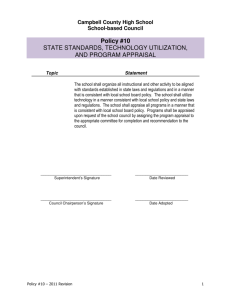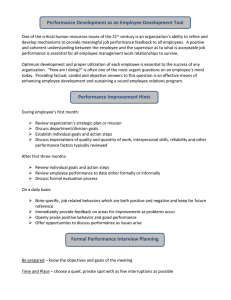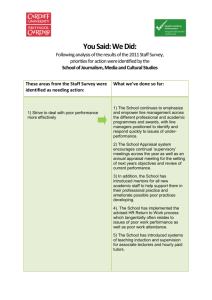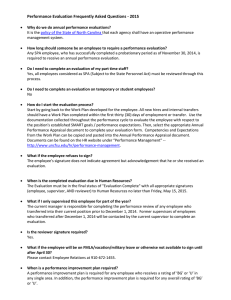EIGHT COMMON APPRAISAL ERRORS
advertisement
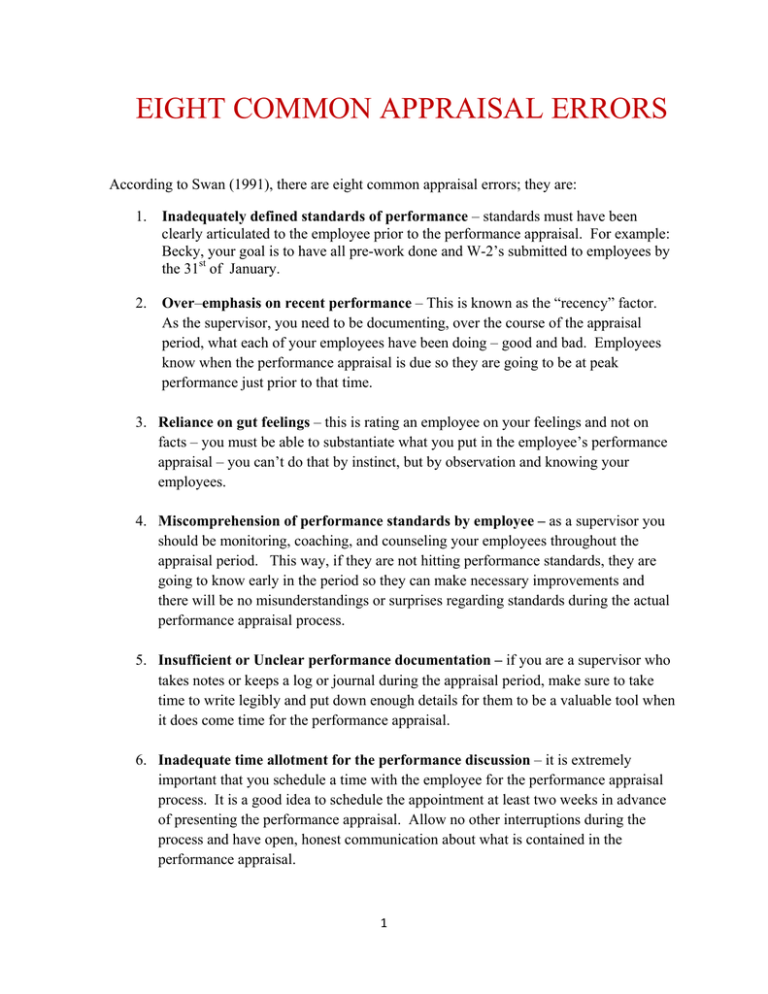
EIGHT COMMON APPRAISAL ERRORS According to Swan (1991), there are eight common appraisal errors; they are: 1. Inadequately defined standards of performance – standards must have been clearly articulated to the employee prior to the performance appraisal. For example: Becky, your goal is to have all pre-work done and W-2’s submitted to employees by the 31st of January. 2. Over–emphasis on recent performance – This is known as the “recency” factor. As the supervisor, you need to be documenting, over the course of the appraisal period, what each of your employees have been doing – good and bad. Employees know when the performance appraisal is due so they are going to be at peak performance just prior to that time. 3. Reliance on gut feelings – this is rating an employee on your feelings and not on facts – you must be able to substantiate what you put in the employee’s performance appraisal – you can’t do that by instinct, but by observation and knowing your employees. 4. Miscomprehension of performance standards by employee – as a supervisor you should be monitoring, coaching, and counseling your employees throughout the appraisal period. This way, if they are not hitting performance standards, they are going to know early in the period so they can make necessary improvements and there will be no misunderstandings or surprises regarding standards during the actual performance appraisal process. 5. Insufficient or Unclear performance documentation – if you are a supervisor who takes notes or keeps a log or journal during the appraisal period, make sure to take time to write legibly and put down enough details for them to be a valuable tool when it does come time for the performance appraisal. 6. Inadequate time allotment for the performance discussion – it is extremely important that you schedule a time with the employee for the performance appraisal process. It is a good idea to schedule the appointment at least two weeks in advance of presenting the performance appraisal. Allow no other interruptions during the process and have open, honest communication about what is contained in the performance appraisal. 1 7. Too much talking by the supervisor – it is important to yield the floor to the employee and to listen to what s/he has to say. This is your opportunity to understand what the employee may be thinking or feeling during this process and they may be agreeing or accepting what is in the performance appraisal. Listening to the employee during this process puts the Team into teamwork. 8. Lack of a follow-up plan – as with addressing employee performance issues, there must be a follow-up plan if you are working with an employee on improving performance. Advising the employee of what they need to improve on and then not assisting them in knowing how to go about making the improvements is literally setting them up to fail. 2

